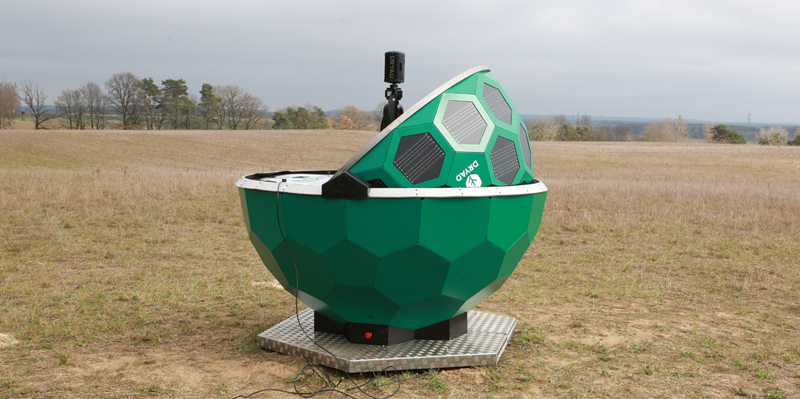As a self-confessed business builder in the Geographic Information and Location Intelligence sectors, with 17 years of experience in both academia and industry, Steven Feldman is well placed to assess educational and training needs from both sides of the fence.
His views come at a timely moment, with Ed Vaizey, the minister for culture and the digital economy promising renewed government effort to tackle the IT skills shortfall. Speaking at the recent Cloud Expo in London, he said, "We are looking hard at further education and higher education to make sure the skills students are learning at college and university are relevant to employers. That means a much closer relationship to employers than has existed before."
Without it, the situation is likely to worsen as workers of the baby boomer era retire. This could lead to massive industry disruption, according to the latest research from specialist recruiter Randstad Technologies. “There’s already fierce fighting for talent as it is, and early retirements will make it even harder to find the right people for the right jobs,” says Ruth Jacobs, managing director of Randstad Technologies.
GeoConnexion (GEO): When set against this background, how should graduates in GI Science or related disciplines be contemplating their employment prospects?
Steve Feldman (SF): I think it fair to say that only a tiny minority have a precise idea of what they want to do when they leave higher education. And while GI professionals have a passion for what they do, competition is fierce for the small number of hard core spatial data-related analytical or consultancy jobs on offer. Far more people now employ GI on a casual basis as part of their daily work and the possibilities for career progression are more likely to be found with employers who regard GI as a core competence, just as they regard spreadsheets or word processors. Such organisations – regardless of industry – give new starters the space in which to discover their strengths, develop their skills, and gain experience for their next – and more important – job change two or three years down the line. It’s something I tend to describe as ‘first job, second job’.
GEO: So at this early stage, expectations should be limited?
SF: For the moment, yes. Gaining real work experience and a sense of direction is much more important in early career development than a knowledge of exotic data structures and advanced computational techniques. The emphasis at this point should be on the type of company or organisation – not its spatial credentials.
GEO: In the commercial arena, are there particular types of companies that offer the best opportunities for those beginning their careers?
SF: The focus should be on mid-sized businesses that are fast-growing and those that are large and well-structured. In moving on from either, it is much easier to scale down in company size and up in managerial responsibility. Put another way, being a middle manager in a large organisation qualifies you to be a senior manager in a slightly smaller one. The reverse is rarely true. It’s basic stuff, but something people don’t think too much about.
GEO: Should HEIs be doing more to promote these and other real-world considerations such as literacy and where the latest OECD study claims British students are the most illiterate in the developed world?
SF: One would hope so, but three years of academic study too often leave graduates with levels of literacy and numeracy little better than when they left school. It means that many are unable to present ideas or thought patterns in a coherent manner, something that is essential in the world of work.
GEO: What sort of earnings are realistically achievable?
SF: It doesn’t take long to do some basic research to establish what potential earnings are at 30, 40 and 50 years of age in different roles and organisations. Doing this may help you better balance your financial aspirations with what you want to do. Unless you are a guru-level geospatial analyst – and these are pretty rare! – most people who drive the technology for six to eight hours a day will have a fairly modest ceiling on their earnings. The GIS manager in an organisation can expect to earn up to 50% more than those he or she is managing, but this is really the upper limit.
My hunch is that as you reduce the time spent applying the technology and increase your level of domain expertise, your salary expectations can rise further. In most organisations with which I’m familiar, such expertise will typically revolve around commercial roles in sales and marketing. This is where your technology background can really pay off.
GEO: Do you have any particular observations concerning Continuing Professional Development (CPD)?
SF: Any organisation worth its salt will have some sort of CPD scheme. But amassing CPD points by signing-up for events organised by umbrella bodies isn’t going to cut much ice with many employers. And similarly, in my experience, the requirement for CGeog-accredited candidates from recruitment agencies and HR departments seeking to fill GI-related jobs is pretty much non-existent. It boils down to the question as to whether GI is a profession or a community of technicians … one on which there are mixed views. A definitive answer – if one is ever possible – will determine career expectations and requirements.
GEO: As this will be the last issue before the June referendum, do you see a potential Brexit affecting employers’ ability to attract and retain talent?
SF: Almost certainly. In the broader technology arena in which I now operate, particularly in London, the number of workers from other EU countries is significant. Given the many unknowns of a Brexit, one has to assume that any future deal as part of the EFTA would have to involve the free movement of individuals. If that didn’t apply, and if non-UK citizens without work permits had to return to their countries of origin, that would pose big problems for employers. But perhaps we should be addressing the bigger question: what is wrong with our education system that we have to go overseas to find people to fill vacancies in well-paid jobs, not just in the technology arena but in many others too?
Subscribe to our newsletter
Stay updated on the latest technology, innovation product arrivals and exciting offers to your inbox.
Newsletter

